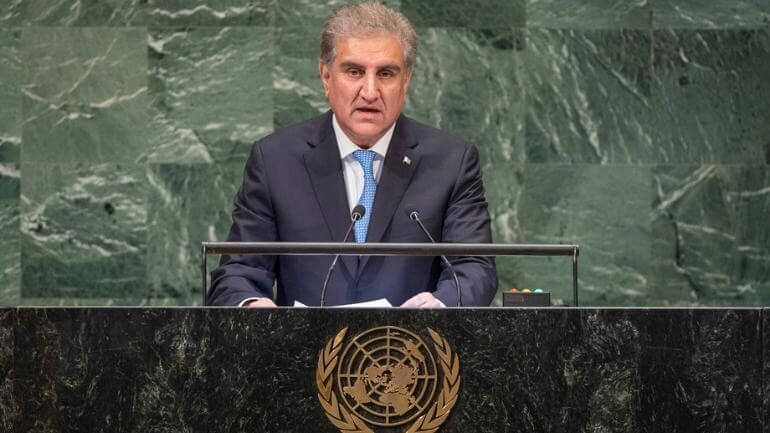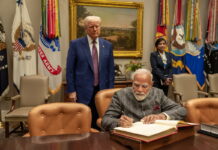Asim Iftikhar, Pakistan’s Foreign Office spokesperson last week said “the situation in Afghanistan, and other areas of common concern including combating Islamophobia, corruption and illicit financial flows, as well as climate change” will be areas of focus, according to Geo TV. However, young diplomat Sneha Dubey slammed at the leaders of Pakistan by putting across a strong rebut for raking Kashmir issue and contrary to the above issue, she said, it is Pakistan that is promoting Islamophobia, corruption and illicit drug trade with Taliban support.
“We keep hearing that Pakistan is a ‘victim of terrorism’. This is the country which is an arsonist disguising itself as a fire-fighter. Pakistan nurtures terrorists in their backyard in the hope that they will only harm their neighbors. Our region, and in fact the entire world, has suffered because of their policies. On the other hand, they are trying to cover up sectarian violence in their country as acts of terror,” Dubey added.
In the Right of Reply, Dubey strongly reiterated that the entire Union Territories of Jammu & Kashmir and Ladakh “were, are and will always be an integral and inalienable part of India. This includes the areas that are under the illegal occupation of Pakistan. We call upon Pakistan to immediately vacate all areas under its illegal occupation.
With the international community marking this month the solemn occasion of the 20th anniversary of the dastardly 9/11 terror attacks, the world has not forgotten that the “mastermind Osama Bin Laden was sheltered in Pakistan, while Former President General Pervez Musharraf milking American funds and ammunition which was meant to fight terrorism. It took US several years to realize that Musharraf was playing a double game. Finally it was Obama administration that took the final call and eliminated the Mastermind.
Since then, Pakistan is seen and regarded as an unreliable ally by United States, in the War on Terror over the last two decades. However, channeling frustration and anger towards Pakistan now would be another strategic misstep at this crucial point in time for the region. It is known that since taking office, President Biden has yet to speak to his Pakistani counterpart, Prime Minister Imran Khan. This cold shoulder has not gone unnoticed in Islamabad. Pakistan nonetheless has decided to move on clear-eyed with its strategy to stabilize Afghanistan. Herein lies the problem: the less that Washington engages with Pakistan, the more disconnected it will be from the region and the weaker its influence will be on the situation’s outcome. Any space that United States cedes, whether in its relationship with a new Afghan government or with Pakistan, will be filled-in chiefly by China, and to some extent Iran and Russia. Importantly though, blaming Pakistan will achieve nothing in granular terms, and will only complicate issues in Afghanistan.
In lieu of these developments, the United States must renew its commitment to a strong and enduring partnership with Pakistan. At the same time, US must up its relationship with other neighbors in South East Asia like India, Bangladesh, Thailand, Singapore, Indonesia and Malaysia. The recent forming of QUAD and ANGUS is a good step in that direction.







